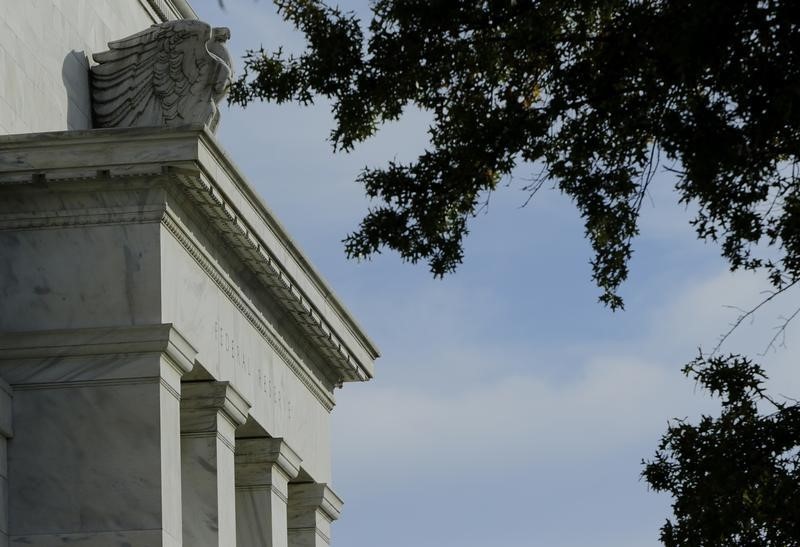By Michael Flaherty and Howard Schneider
WASHINGTON (Reuters) - The Federal Reserve on Wednesday said the U.S. economy was expanding "at a solid pace" as it largely looked through weakness overseas in a signal that it remains on track to raise interest rates later this year.
The U.S. central bank repeated it would be "patient" in deciding when to raise benchmark borrowing costs from zero, where they have been stuck since late-2008.
However, after a two-day meeting, policymakers struck an upbeat tone on the U.S. economy's prospects and held to their view that energy-led weakness in inflation would dissipate.
"Economic activity has been expanding at a solid pace," the Fed's policy-setting panel said in a statement that marked an upgrade to its prior assessment of a "moderate pace" of growth.
"Labor market conditions have improved further, with strong job gains and a lower unemployment rate," it said. "Recent declines in energy prices have boosted household purchasing power."
In making its announcement, the Fed largely skirted over slumping economies in Europe and Asia, saying only that it would take "financial and international developments" into account when determining when to raise rates. In their last statement in December, the Fed had only noted "financial developments."
The U.S. central bank's stance stands in sharp contrast to many of its peers in developed countries, which have recently eased monetary policy to boost their struggling economies. The policy divergence has helped push the U.S. dollar to multi-year highs.
"You would have thought that if you were going to really postpone (a rate hike) to 2016 there would have been some more emphasis on international events and the dollar," said John Silva, an economist at Wells Fargo in Charlotte, North Carolina.
The S&P 500 stock index turned negative after the statement was released, while the yield on the 30-year U.S. Treasury bond returned to a record low. The dollar strengthened against a broad index of foreign currencies.
Many Fed officials have pointed to a possible rate increase around mid-year, but they again left the door open to a later move. "The committee judges that it can be patient in beginning to normalize the stance of monetary policy," Fed said.
The central bank acknowledged inflation had declined further below its 2 percent target and that market-based price gauges had fallen substantially - a more negative assessment than in December.
The latest statement follows a policy shift begun in December when the Fed first said it would take a patient approach to raising rates. At that time, Fed Chair Janet Yellen made clear that "patient" meant at least two meetings.
In December, the Fed said that approach was consistent with its previous guidance of keeping rates near zero for a "considerable time." The statement on Wednesday removed the reference to its former guidance.

The statement was adopted without dissent.